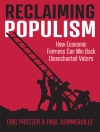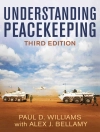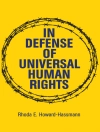This book examines how the interplay between globalization and the assertion of local identities is reshaping the political landscape of Africa. While defending their values against external forces, people simultaneously – and paradoxically – use the interconnectivity of global networks to maximize their particular interests. Focusing on the relation between national identity and state formation, the authors explore the far-reaching consequences of these contradictory dynamics.
Although Africa shares many common trends with other parts of the world, it also displays distinctive features. A region characterized by the increased mobility of people, goods and ideas challenges some conventional assumptions of statecraft and also highlights the advantages of federalism – not merely as a constitutional option, but as a pragmatic device for managing diversity and holding fragile states together. The book further explores emerging types of state formation in the same political space, as exemplified by the combination of elements of a kingdom, an independent state and a national power base in the province of Kwa Zulu-Natal and the careful crafting of an alternative state within a state by the Solidarity Movement in South Africa.
Informed by examples and case studies drawn from different parts of Africa, this book will be of great interest to students and scholars of Africa, politics, sociology, media studies and the social sciences more generally.
قائمة المحتويات
Table of contents:Preface
List of Contributors
List of Acronyms
Chapter 1: Introduction: Identity, Networks and State Formation in Africa
Manuel Castells and Bernard Lategan
Chapter 2: Mobility, Globalisation and the Policing of Citizenship and Belonging in the 21st Century
Francis B. Nyamnjoh
Chapter 3: Federalism in Africa
Eghosa E. Osaghae
Chapter 4: National Identity and State Formation: The Case of the Former UN Trust Territory of the British Southern Cameroons
Carlson Anyangwe
Chapter 5: The Secession of Eritrea from Ethiopia: A Historical Profile
Bahru Zewde
Chapter 6: National Identity of Sudan and the Emergence of South Sudan
Samson S. Wassara
Chapter 7: A New Kind of State for the Nation? Civil Society Mobilisation and White Minority Identity Politics in Post-apartheid South Africa
Danelle van Zyl-Hermann
Chapter 8: Reimagining the Sporting Nation: Negotiating Identity and Globalisation Amongst ‘Coloured’ Supporters of the New Zealand Rugby Team
Marizanne and Albert Grundlingh
Chapter 9: The Persistence of Ethnic Identities in Kwa Zulu-Natal
Jabulani Sithole
Chapter 10: Identity-based Conflict in Kwa Zulu-Natal: Current State and Future Prospects
Mary de Haas
Chapter 11: Rethinking Mobility, States, Borders and Identity: Some Concluding Remarks
Bernard Lategan
References
عن المؤلف
Manuel Castells is Professor Emeritus of Sociology, University of California, Berkeley. He is one of the most widely-cited and influential social scientists in the world today and he has taught at universities in Chile, Brazil, Mexico, Venezuela, Puerto Rico, Dominican Republic, and Bolivia.
Bernard Lategan is Founder and former Director of the Stellenbosch Institute for Advanced Study in South Africa.












